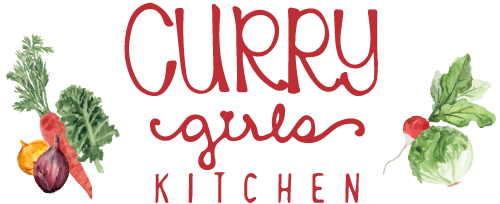Eating is an essential aspect of our lives, offering both sustenance and pleasure. But how often do we eat while distracted, only to finish and realize we barely tasted our food? Or find ourselves eating out of boredom or stress? This is where the concept of mindful nutrition steps in, teaching us to be present with our food, honoring our hunger and fullness cues, and making conscious decisions about what we consume.
Understanding Mindful Nutrition
Mindful nutrition is a holistic approach to food and eating that involves paying full attention to the entire experience of eating, from the choice of food to its taste, texture, and how it makes us feel. According to the Mayo Clinic, it’s about immersing yourself in the nourishment process.
With mindful nutrition, you become fully present during your meals. It’s about celebrating food rather than seeing it merely as fuel or, worse, as an enemy.
The Importance of a Registered Dietitian
When embarking on a journey towards more mindful nutrition, seeking advice from professionals can be incredibly beneficial. A registered dietitian is trained not only in the nutritional content of food but can also provide strategies for changing eating habits. They can offer insights on how to replace binge eating with more mindful practices and make healthier food choices.
Breaking the Cycle of Emotional Eating
One of the key challenges many face is emotional eating. This involves consuming food in response to feelings rather than hunger. The principles of mindful nutrition encourage recognizing these emotional triggers. Once identified, strategies such as deep breathing or even a short walk can be employed instead of turning to food. As Dr. Mark Hyman mentions, recognizing and understanding our relationship with food is fundamental to change.
Benefits of Eating Mindfully
- Improved Digestion: When you eat mindfully, you chew your food better, which can lead to improved digestion.
- Reduced Overeating: By paying attention to hunger and fullness cues, you’re less likely to overeat.
- Enhanced Enjoyment: When you savor every bite, you genuinely appreciate the flavors, enhancing the overall eating experience.
- Better Food Choices: Being more in tune with your body’s needs can lead to making healthier food choices over time.
How to Incorporate Mindful Nutrition into Daily Life
- Ditch Distractions: Turn off the TV, put down the phone, and focus solely on your meal.
- Chew Thoroughly: Make a conscious effort to chew each bite multiple times, savoring the taste and texture.
- Practice Gratitude: Before eating, take a moment to express gratitude for your meal.
- Listen to Your Body: Recognize when you’re hungry and when you’re full. Avoid eating just because “it’s time.”
- Choose Quality over Quantity: Opt for whole, nutrient-rich foods that nourish both the body and mind.
Frequently Asked Questions
What is the primary goal of mindful nutrition?
The central goal of mindful nutrition is to cultivate a balanced and conscious relationship with food. It encourages awareness of physical hunger and satiety cues to guide decisions on when to begin eating and when to stop.
How can I differentiate between physical hunger and emotional hunger?
Physical hunger is gradual and can be satisfied with any food, while emotional hunger is sudden and often craves specific comfort foods. Emotional hunger also tends to lead to mindless eating and feelings of guilt afterward.
How does a registered dietitian assist in mindful nutrition?
A registered dietitian can provide individualized guidance on food choices, help in understanding hunger and fullness cues, and offer strategies to combat emotional or binge eating.
Is mindful eating the same as a diet?
No, mindful eating is not a diet. It’s a way of experiencing food. While diets dictate what to eat, mindful eating teaches you how to be present with and savor whatever you choose to eat.
How can I practice mindful nutrition in a busy lifestyle?
Start with small steps. Dedicate at least one meal a day where you eat without distractions. Take short breaks during meals to check in with your hunger and fullness cues. Over time, these practices can become habits.
Wrapping Up
Mindful nutrition is a transformative journey towards a healthier relationship with food. It offers a middle ground in a world filled with extremes, from binge eating to restrictive diets. It reminds us that food is not just fuel, but an experience to be savored and enjoyed.
To delve deeper into this topic:
- Explore Healthline’s comprehensive guide on mindful eating.
- Check out the Cleveland Clinic’s insights on the benefits of mindful eating.
- Review John Hopkins Medicine’s strategies for cultivating a mindful eating practice.
In the words of Thich Nhat Hanh, “When you eat, just eat.” Let’s transform our relationship with food and cultivate a practice of mindful nutrition, fostering not only physical well-being but also mental tranquility.

